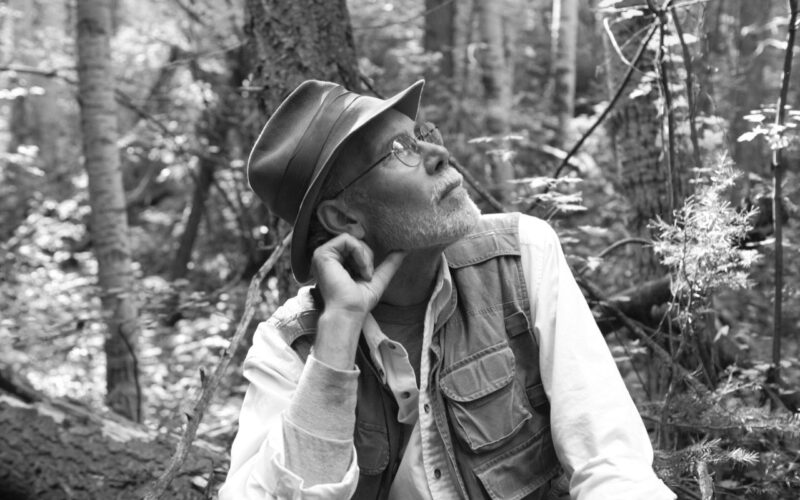BECCA MARTIN-BROWN
bmartin@nwaonline.com
“We organize our lives through story,” said Richard Width. “It’s one of the reasons art exists in all its forms — theater, song, dance, film, visual art. Art presents existence ordered into story.”
On Jan. 11, the hospice nurse, theater artist and author will tell his story — “his lived experiences in dying” — as one of the books in Fayetteville Public Library’s Human Library.
Part of an international effort to “challenge stigma and stereotypes” since 2000, the Human Library returns to FPL after a covid-forced hiatus.
“We’d done this a couple of times and had one planned for 2020, but the pandemic derailed that,” said Heather Robideaux, FPL’s manager of adult services. “People kept asking for another edition. It’s been one of the most impactful community programs that have come through the library.”
The idea is that more than a dozen human “books” will gather in the FPL Event Center. Patrons can “check them out” for a 15-minute conversation. An avid reader himself, Width sees the Human Library as another format for “authentic, intimate dialogues between an author and a reader” to occur.
“My lived experience has taught me that the opportunity to honestly discuss death and dying flings wide the door to all the varied human experiences of living,” he said. “After all, a life is literally defined by the fact that it ends.”
John Stout, an English teacher, said he “wasn’t sure that I even had a story to tell, but preparing for this event helped me to look back and think of the past few years as a kind of narrative. The process of becoming a teacher, getting more involved in the local LGBT community, making new friends and volunteering — all of these incremental actions form a larger story. Everyone’s life is constructed of similar pieces, strung together over time.”
He hopes, he said, to make “these ‘other stories’ more visible.”
“It’s easy to think of people unlike ourselves as ‘types’ without considering that they have lives as interesting and complex as our own,” he said. “But once you understand that, it’s hard to go back.”
Don House’s name is readily recognizable in Northwest Arkansas as a photographer and storyteller, but this time, his tale is about “living in isolated, rural Washington County for over 25 years, off the grid.”
“I actually hesitated, when asked to consider joining the Human Book project, because I knew that many of the participants deal with the kinds of stereotypes, racism, bigotry and hatred that can destroy lives, and my story is much less dramatic, less dangerous perhaps, and even involves humorous aspects,” he said. “But the urban-rural divide is real and problematic.
“As Northwest Arkansas keeps moving rapidly toward the megalopolis that it seems bent to become … I believe that the things that urban and rural residents have in common must be recognized, and our mutual desire to save what is unique and beautiful and important [must] bring us together before it’s gone forever.”
Elsa Carenbauer, an artist, and Alaynna Littlefeather, a museum store manager, both have very personal stories to tell. Carenbauer, who is Asian-American, and Littlefeather, who is Navajo, both walk between two worlds.
“For most of my life I’ve been told that I’m not Asian enough, not white enough, that I’m different, that I don’t belong,” Carenbauer said.
“The struggle of being ‘Native enough’ and ‘American enough’ is something I have always had difficulty with,” Littlefeather added. “What surprises me about my story is how far I’ve come to accepting that I ‘walk two moons.’ I am surprised that it’s taken me many years to be OK with identifying as both Indigenous and American. While I have my struggles at the end of the day, it makes me ‘me,’ and I love every bit of that.”
Na’Tosha De’Von, an actor, director and playwright, said many people shy away from difficult topics.
“We feel often [that we] don’t want to be a burden or feel isolated in our vices,” she said. “I want to open the door to more human conversations on these topics in hopes to connect the through-line of the human experience.”
__
FAQ
Human Library
WHEN — 12:30-4 p.m. Jan. 11; drop in any time
WHERE — Fayetteville Public Library’s Event Center
COST — Free
INFO — faylib.org/event/12358554



